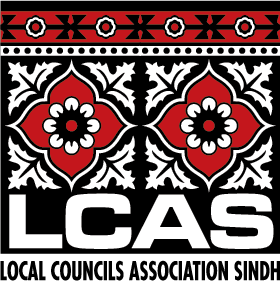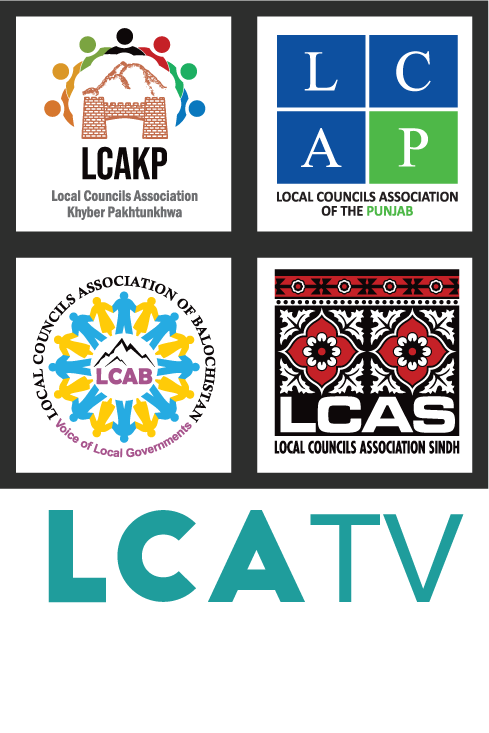

Local Empowerment, Advocacy and Development for SDGs Localisation in Pakistan
On 25 September 2015, the world leader adopted the 2030 Agenda for Sustainable Development including the 17 Sustainable Development Goals. enjoy a standard of living adequate to the health and well-being of them and their family members. The SDGS provide a basic standard for all people across a number of essential areas: health, education, gender equality, clean water, energy etc. If the SDGs are to be achieved it must guide development in those places were poverty, hunger, lack of education, poor sanitation etc is most prevalent.
Local governments in those poorest areas are to be the catalysts to help make this happen. Since the greatest poverty, hunger and deprivation is found in rural areas, policies and efforts to realise these goals must be implemented at local, district and provincial government level.
Pakistan was among the first country to adopt the 2030 Agenda as ‘National Development Agenda’, through a resolution unanimously passed by the parliament.
Context
In October 2015, Pakistan committed to the 2030 Agenda for Sustainable Development. In February 2016, it became the first country in the world to adopt the Sustainable Development Goals (SDGs) as its own national development agenda through a National Assembly Resolution on 2030 Agenda. Learning from the experience of the Millennium Development Goals (MDGs), Pakistan’s national and provincial assemblies established SDG Taskforces to oversee progress on the goals.
In fact, Pakistan started a conversation around the post-2015 Agenda as early as 2013, when nationwide consultations helped identify the priorities that were weaved into Pakistan’s national development framework, Vision 2025. These developments reflect Pakistan’s commitment to the SDGs. More recently, the 12th Five-Year Plan and provincial medium-term development strategies are all aligned with the 2030 Agenda for achieving inclusive growth and sustainable development. Pakistan is progressing on several fronts – such as reducing poverty and child stunting, improving transparency and accountability, and promoting gender equality and women’s empowerment. The 2030 Agenda complements Pakistan’s political commitment to these priorities.
About Us
UCLG is a worldwide association of local governments and the only local government organisation recognised by the United Nations. The Asia Pacific region is the largest section having linkages with more than 7,000 cities and local governments in Asia and Pacific. UCLG ASPAC facilitates partnerships and linkages among cities and local governments at regional and global levels as well as responds to the needs of its members. Like many other countries in the region, UCLG ASPAC has strong relations with Pakistan working through the Pakistani Local Government Associations and their member Local Governments.
LEAD for SDGs: Local Empowerment, Advocacy and Development for SDGs localisation in Pakistan programme, focuses fostering an enabling environment for mainstreaming SDGs in local development processes through effective leadership and policy advocacy, supported by evidence-based research, capacity building and improved coordination, and piloting innovative approaches for SDGs localisation in Pakistan.




The Programme implementation commenced in March 2019 and is currently in its 6-month inception phase. LEAD for SDGs is co-financed by UCLG ASPAC and the European Union and will be implemented in partnership with the Local Councils Associations of Pakistan including the Association for Development of the Local Governance (ADLG), the Local Councils Association of Sindh (LCAS) and Balochistan (LCAB).
Overall programme objective is “To contribute in the localisation and achievement of Sustainable Development Goals in Pakistan”.
LEAD for SDGs aims to foster an enabling environment for mainstreaming SDGs in local development through effective leadership and policy advocacy, supported by evidence-based research, capacity building, improved coordination, and piloting innovative approaches for SDGs localisation. Expected results (ER) of the programme’s implementation are as follow:
- ER1: Developing effective and responsive leadership of local governments in support of SDGs Localisation
- ER2: Improved institutional capacity of the local governments in support of SDGs
- ER3: Improved Knowledge and Information around SDGs
- ER4: Support in piloting innovative approaches to SDGs Localisation in four districts of Balochistan and Sindh
The programme’s activities will build on the commitment and on-going work of the Government of Pakistan through technical and advocacy support. At the federal and provincial levels, the programme works closely with the Ministry of Planning, Development and Special Initiatives as well as the Pakistan National Parliamentary Taskforce on SDGs and Provincial Planning and Development Departments, Parliamentary Taskforces on SDGs, and representatives of local governments to support the implementation of the SDGs National Framework through a broad range of activities. These include developing linkages, raising awareness and knowledge, conducting action-orientated researches and facilitating the inputs of local governments in the Voluntary National Review (VNR). The implementation is conducted at both national and local levels, with specific focus on Balochistan and Sindh Provinces.
The programme will facilitate the achievement of the SDGs by supporting effective leadership, advocating for policies and policy advocacy, supported by evidence-based research, building capacity, improving coordination, and piloting innovative approaches for SDGs.
The programme will be implemented in Balochistan and Sindh and will support Local Governments in 2 pilot districts of each province. The idea is to help them develop the capacity with their citizens and civil society organisations.


